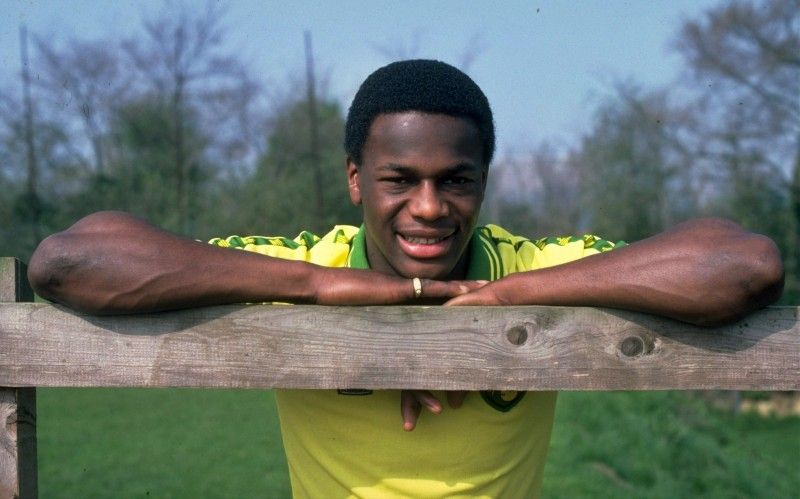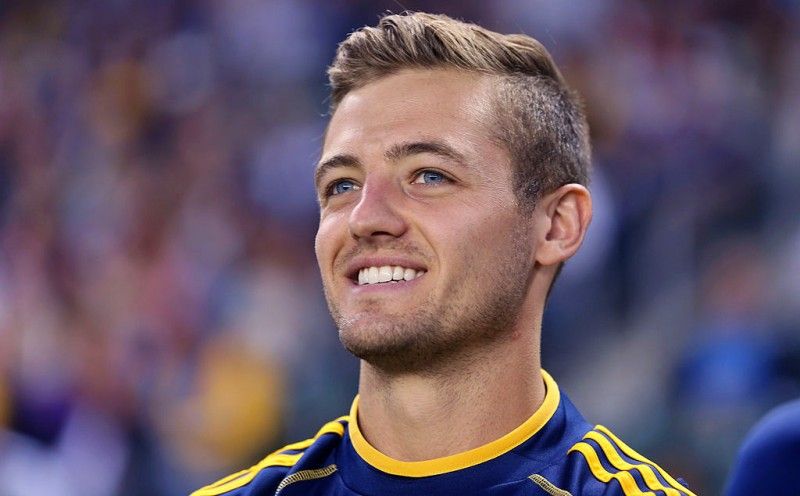

Share
19th May 2022
01:10pm BST

"For a long time I've thought I would have to hide my truth because I wanted to be, and now I am, a professional footballer. I asked myself if I should wait until I've retired to come out. No other player in the professional game here is out."When you examine the history of homophobia in professional football in the UK, it is not hard to see where Daniels' concerns came from, but it also underscores the seismic impact he will have on young LGBTQ children and players throughout the UK and Ireland. [caption id="attachment_261268" align="aligncenter" width="800"]
 Justin Fashanu, then with Norwich City, poses for a press snap in 1981. (Credit: Allsport UK/Allsport)[/caption]
Justin Fashanu, then with Norwich City, poses for a press snap in 1981. (Credit: Allsport UK/Allsport)[/caption]
 Robbie Rogers pictured before an LA Galaxy match in 2013. (Credit: Getty Images)[/caption]
Robbie Rogers pictured before an LA Galaxy match in 2013. (Credit: Getty Images)[/caption]
"Because of the things I've heard in the dressing room, I just thought, 'I need to get away from this – make my announcement, find peace, go from there. So, I can never imagine announcing that at Leeds."Later that year, Rogers returned to football to play with LA Galaxy a team he remained with until 2017. In September 2013, Thomas Hitzlsperger became the highest-profile player to come out after retiring. The German ace known for his powerful shot played for Aston Villa, West Ham and Everton. Hitzlsperger acknowledged that being gay in England ‘was no big thing’. Nevertheless, he was quick to call out the homophobic attitudes of his teammates:
"I was never ashamed of being who I am, but it was not always easy to sit on a table with 20 young men and listen to jokes about gays."Despite the best intentions of many involved in the game, the issue of homophobia has remained endemic. Last year, The Professional Footballers Association of England found that a third of the abuse players received was homophobic. Chants such as ‘rent boy’ and derogatory gay slurs like 'poof' are still heard from the crowds at games. Players, including Sol Campbell, have spoken about receiving homophobic abuse despite being heterosexual and recently Patrice Evra stated some of his former West Ham teammates would refuse to shower with a gay player. All of this is compounded by the fact that the next World Cup will be held in Qatar - a country where it is illegal to be gay. World Cup organisers have clarified that attendees will not be stopped entering the country based on sexual orientation. Nevertheless, hosting such an important event for the global football community in a country with such noted anti-gay views could hardly be deemed encouraging for LGBT fans. Despite all the above, progress has been made. The Premier League have introduced a league-wide ban on anyone caught behaving in a discriminatory fashion whilst attending a game. A rainbow laces campaign was launched where players could show support for the LGBTQ+ community and prominent players have worn rainbow armbands. While awareness campaigns and solidarity from current players is important, it pales in comparison to fans having an out gay footballer they can support for the first time in nearly 30 years. The impact Jake Daniels will have on generations to come will not be forgotten as he moves to normalise something that, in actuality, should be quite normal. In the Blackpool star's coming out letter, he signs off on a simple yet positive mantra that going forward football should take heed of - You being you, and being happy, is what matters most.
Explore more on these topics: